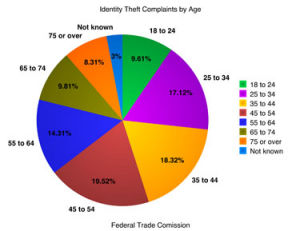ID theft realistic fear for students
September 1, 2009
Freshman students face many challenges when entering the realm of higher education. From speeches on drunken driving, sexually transmitted diseases, and all-around stranger danger the warning list seems endless. Of all those possible perils one problem student’s face that is rarely addresses is the increasing issue of identity theft.
If a student is over the age of 18 and breathing then chances are good they have heard of identity theft. Identify theft and identify fraud are generally the practice of gathering a person’s personal information to use for financial gain. “It’s a growing problem,” said Shari Jackson of the Washburn police department, “and a great example of that is last week when we had an issue with a student giving personal information out over the phone.”
The personal information necessary for these crimes to work include social security numbers, dates of birth, mother’s maiden name, checking account number, etc. There’s no end to the ways a truly crafty thief can use personal information to get what they want. This might be as simple as opening up a credit card under their victim’s name or completely assuming their identity.
Whether they realize it or not, students face these dangers every day. There’s a myriad of ways identity theft can occur on campus. Thieves will go to any length to get what they need, from filching information from the trash can to using a camera phone to sneak a picture of someone’s crucial data.
A little known danger is pretexting. This is the practice a perpetrator of getting personal information under false pretenses. Those “pretexters” will then sell your information to people who may use it to get credit in your name, steal your assets, or generally investigate for further information.
Everyone receives pre-approved monthly credit offers, as well as those mass-mailed forms. These forms are typically partially filled out with the recipient’s information like name and address. Never respond to cold calls asking for information either. “Recently we’ve had problems with people calling and pretending to be with a bank to get account information,” said Jackson. Another danger for students is the necessary use of social security numbers on campus. Constantly using Washburn University’s designated ID is a perfect way to protect individual identities.
Should a student’s identity be stolen there are good options for recourse. The most obvious, but little used method, is the filing of a police report. When a identity theft victim files a police report they have two specific options. The first is just to have a police report officially taken. Many states don’t have specific laws about this but an official report is the victim’s right.
When a police report is filed the victim is automatically entitled to a seven year fraud alert, a credit freeze in the states that have adopted this procedure into law, as well as having inaccurate information blocked from their official credit report. Another good practice to maintain is getting official copies of all the paperwork that is filled out. The second option in this scenario is for the victim to have the accounts removed from their credit report once they have given proof charges on their account are fraudulent.
Washburn University’s police department wants to warn students to remain vigilant when protecting their personal information. Although they don’t currently have any records on file of students’ identities being stolen they still want students to know of the danger. The Web site identitytheft.com gives startling statistics such as “50% of college students receive pre-approved credit card offers in the mail daily” and “48% of students use their social security numbers for identity purposes.”
Remaining safe and identity theft free is relatively simple. Remember to shred all personal information, change passwords frequently and choose words more difficult than your dog’s name. Students should also keep a tighter eye on their purse and wallet as well as refrain from sharing obvious information. Just because a dorm roommate seems completely trustworthy doesn’t mean the people they bring over are honorable. The safest bet is to not trust anyone. For more formation on this issue check out the Web site Idtheftcenter.org or contact the Washburn police department.



